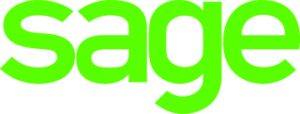Accounting can be an intimidating and often dreaded part of business for many entrepreneurs. To make it harder, there are many beliefs, stereotypes and false facts flying around the internet that it can be hard to distinguish the facts from the rest of the noise. But, if you don’t understand the truth of a situation, you can risk unfortunate consequences.
To help dispel some of those myths, here are four of the most common myths, BUSTED.
Myth #1: Accounting is only important at tax time.
Fact: Tax time might be the most crucial few weeks for bookkeepers, but it is certainly not the only important time. Actually, it’s necessary that you keep track of your books at all times of the year. If you stay on top of your finances throughout the year, not only will filing be much easier, but you’ll be able to take advantage of growth opportunities while mitigating risks from any source. Staying current on the books is one of the best ways to ensure continuity.
Myth #2: Manual accounting is fine. If it isn’t broke, why fix it?
Fact: Accounting software yields too many benefits to ignore. You are most likely wearing many hats, and accountant is just one of them. Bu you simply don’t have enough time. Many digital solutions are catered specifically to small business needs, which can give owners customizable tools to achieve success.
This means it is a much more efficient option than manual recording, making you more productive and giving you back some of that valuable time.
Myth #3: Owners don’t need to spend time accounting -they can give everything to a professional.
Fact: Accountants should be a resource, not a catch-all. While they can keep track of the books and file taxes, they can – and should – do much more. These two tasks are basic for professionals – their bread and butter, however, is much more involved. They can act almost as consultants and small business experts. For instance, they will be able to help you with business advice, guide tax plans, ensure compliance, look into financing and credit possibilities, manage cash flow, and find ways to reduce your overhead expenses while protecting assets etc. That said, you still need to be involved firsthand in the financial aspects of your company, to understand how the business is faring overall.
Myth #4: Accounting software is simple, so there’s no need for a deep understanding.
Fact: It’s certainly true that financial programs are easy to use, but you should definitely have a working knowledge of how your company operates financially. Accountants can give you all of the advice, mentioned in Myth 3, and suggest lucrative paths, but none of it matters if you can’t make the ultimate – and correct – decisions. And you can’t make the best choices possible without at least a rudimentary understanding of how the accounting within your company works. To remedy this, take time to understand your accounting program, whether that means taking a class or simply reading the manual when installing the software.
